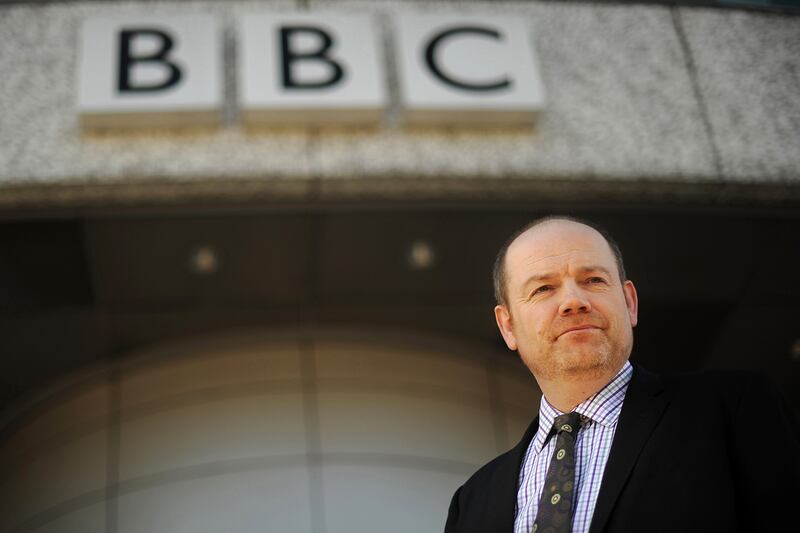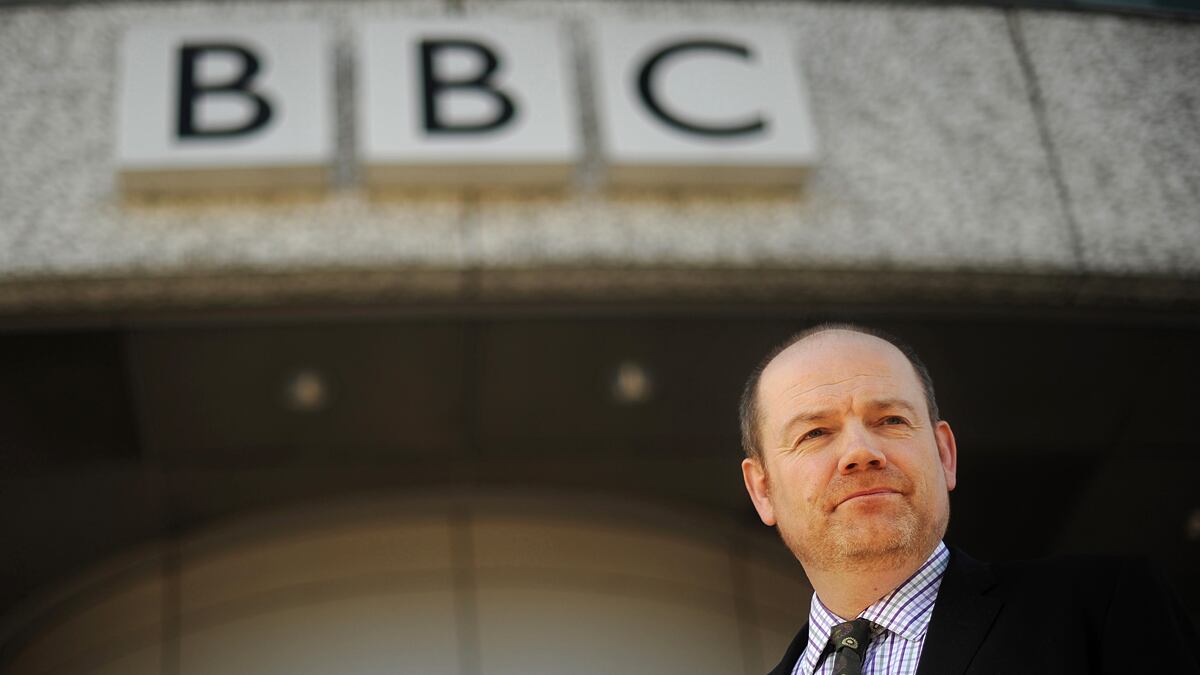American readers may not have heard of Jimmy Savile—that is, until recently. A phenomenally popular British radio DJ, TV star, and fundraiser for children’s charities throughout the ’60s, ’70s, and ’80s, Savile, it now appears, had a voracious sexual appetite for young women and girls—some as young as 11. There are even allegations that his abusing behavior extended to boys, too.
Police are now following hundreds of lines of enquiry involving many hundreds of potential victims. The fact that Savile was able to continue undetected for decades (he died last year) has come as a genuine shock to the nation. But that much of the abuse happened around BBC programs—often specifically aimed at children and teenagers—sometimes on BBC premises and with the almost certain knowledge of some BBC staff, has kicked off the mother of all crises for the BBC.
But it's a crisis for the BBC not so much because of what happened 40 years ago—dreadful as that appears to have been—but because of the way those running our national broadcaster today have dealt with it. And although U.S. readers probably haven’t noticed that either the row has found its way across the Atlantic in the person of Mark Thompson—recently departed BBC director general and incoming New York Times CEO. Attentive viewers might have seen him confronted outside the Old Gray Lady’s offices by microphone wielding TV reporters insistent on finding out what he knew about the Savile scandal. Not because he was in charge at the time—many of Savile’s alleged victims are considerably older than he is—but because he was in charge when a BBC program’s investigation into Savile’s activities was shelved at the end of last year.
This is potentially very toxic for anyone involved since it occurred suddenly and only days after the BBC announced a Christmas schedule showcasing very high profile tribute pieces to the recently deceased national treasure, Jimmy Savile. The suspicion—whipped up by the BBC’s media competitors certainly but real enough nonetheless—being that the BBC’s potential corporate embarrassment over its widely trumpeted Savile tributes led to high-level executive pressure to stop the journalistic investigation by the BBC’s nightly current affairs show “Newsnight” in its tracks. After all, hagiographical tributes to a serial child abuser really wouldn’t do a lot for Christmas ratings—or more importantly the BBC’s reputation.

So the question of how this happened and who in the BBC hierarchy knew precisely what and when, have become critical. Especially for the new director general since in his former incarnation as the BBC’s head of TV (a different division to News) any corporate jiggery pokery would have most likely involved him. Consequently, these are questions that are reputation- and even career-threatening ...
And in common with many of his erstwhile senior BBC colleagues and even his successor in the top job, George Entwistle, Thompson has struggled to get his story straight. In the BBC structure the director general is CEO and editor in chief—so editorially controversial matters eventually find their way to him (yes, up to now it has always been a ‘him.’) First, Thompson said he knew nothing at all about the Newsnight Savile story. Then he admitted he might have been generally aware of it, and that it involved allegations of child abuse. Then he agreed that he’d been told of it specifically by a BBC journalist at a drinks party and had subsequently asked senior news managers about it.
By then, he says, they told him the investigation had been called off for “editorial reasons.” This is not over yet—since the full story of what actually happened and who knew what has yet to be told—but already the NYT's reader's editor is wondering out loud whether Thompson is the right man for the job.
Back home matters are already much more serious. The BBC initially maintained in advance of the ITV documentary—and knowing the thrust of its allegations about Savile's activities—that it had searched its archives and found no evidence of complaints about Savile and therefore that there was no case for further action. However, once the scale of alleged abuse started to become clear, that line simply couldn’t hold and the BBC said it would hold its own Savile enquiry as soon as police enquiries were complete. As for the Newsnight decision, the BBC said there was simply no case for questioning the editor’s original decision to drop the investigation. Well that line didn't hold either and within two weeks the BBC had been forced to announce two major internal enquiries—into Savile and the Newsnight decision—and a third into sexual harassment more generally at the corporation.
The BBC has now done pretty much all it can—pending the outcomes of those two enquiries. But in the process the BBC’s story kept changing and concessions—like the enquiries themselves—were drawn like teeth. As a result the corporation has looked close to leaderless with the actions of numerous senior executives under scrutiny—primarily over Newsnight and the handling of matters since the ITV documentary broke the story—and no one apparently, least of all Thompson’s successor Entwistle, capable of getting a grip.
My guess is that the Newsnight enquiry will conclude that there was no inappropriate executive pressure on Newsnight to drop their Savile enquiry and that what looks so overwhelmingly suspicious with hindsight was just an editor making what at the time seemed a reasonable if difficult judgment. Meanwhile, what should have been a tailor-made dream for a new director general has become a first order nightmare. And what for the BBC should have been about what happened 40 years ago—difficult and traumatic as that was—is threatening the corporation’s reputation for probity, good governance, and above all, sheer competence right here and now.
Steve Hewlett writes about media for the Guardian Newspaper and presents the weekly Mediashow on BBC radio's main national speech network—Radio 4.





